Things To Do To Help With Anxiety
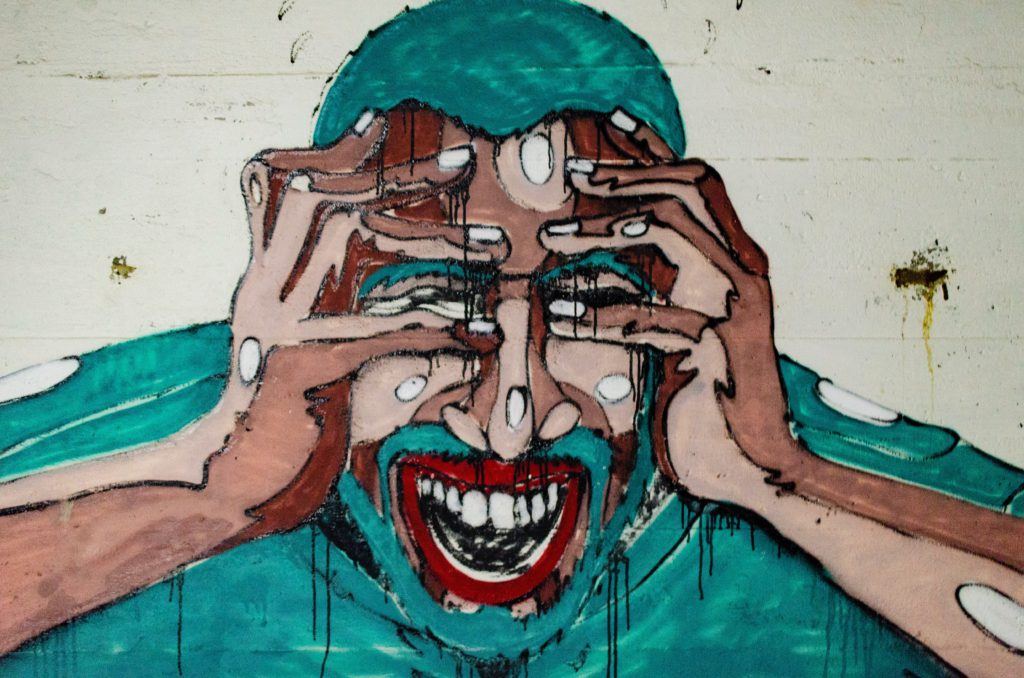
Post Updated: January 10, 2022
Do you get anxiety? I do! Everyone does. Here are some things to do to help with anxiety.
I experience anxiety from time to time, but I realized it has been a little more intense than usual.
Personal development to me means I am responsible for taking care of my mental and emotional wellbeing.
So, I began counseling, to deal with the anxiety I was feeling and experiencing in a very authentic way.
My evaluation brought the news I was unsure of but felt with intensity. PTSD with moderate to mild Anxiety and Depression.
PTSD is an anxiety disorder. Can occur in all people, in people of any ethnicity, nationality or culture, and any age.
PTSD affects approximately 3.5 percent of U.S. adults.
An estimated one in eleven people will be diagnosed with PTSD in their lifetime.
Women are twice as likely as men to have PTSD.
Now that I am more aware of what is happening when I began to feel anxiety nearby.
I can be effective in getting myself into a state of calm.
Instead of allowing anxiety depression and PTSD to rule my mind, body, and soul.
I rule it with knowledge, strength, and wisdom.
What Is Anxiety?
Anxiety is a normal and often healthy emotion.
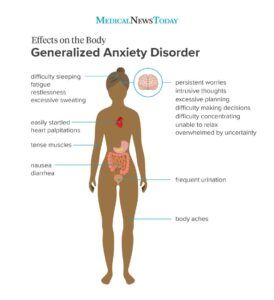 Anxiety is your body’s natural response to stress. It is a feeling of fear or apprehension about what is to come.
Anxiety is your body’s natural response to stress. It is a feeling of fear or apprehension about what is to come.
The first day of school. Going to a job interview. Even giving a speech may cause most people to feel fearful and nervous.
Occasional anxiety is an expected part of life. You might feel anxious when faced with a problem at work.
Before taking a test. Before making a major decision. Anxiety disorders involve more than temporary worry or fear.
But when a person feels disproportionate levels of anxiety. It might become a medical disorder.
Anxiety disorders form a category of mental health diagnoses. That leads to excessive nervousness, fear, apprehension, and worry.
After reading this article if you think you may be experiencing more anxiety than ever before. Seek help. It is vital to take care of your mental health.
It is important that we free ourselves from the effects of anxiety on our bodies, our soul, and spirit.
What Causes Anxiety?
A mental health professional can diagnose anxiety and identify potential causes.
But sometimes, stressful events occur. As a result of a third party. Such as an employer or partner.
And anxious feelings might emerge from people telling themselves the worst will happen.
An anxiety disorder may develop without any external stimuli whatsoever.
Anxiety disorders have a complicated network of causes.
Causes of Anxiety
Environmental Factors: Elements in the environment around an individual can increase anxiety.
Stress from a personal relationship. Job, school, or financial predicament can contribute to anxiety disorders.
- Genetics: People who have family members with anxiety disorder. Are more likely to have one themselves.
- Medical Factors: Other medical conditions can lead to an anxiety disorder. Such as the side effects of medication.
Symptoms of a disease, or stress from a serious underlying medical condition. That may not trigger the changes seen in anxiety disorders.
But might be causing significant lifestyle adjustments, pain, or restricted movement.
- Brain Chemistry: Stressful or traumatic experiences and genetic factors. Can alter brain structure and function. To react more to triggers that would not before having caused anxiety.
Psychologists and neurologists define many anxiety and mood disorders as disruptions. To hormones and electrical signals in the brain.
- Use of or Withdrawal from an Illicit Substance: Limit alcohol and caffeine, which can aggravate anxiety and trigger panic attacks.
The stress of day-to-day living. Combined with any of the above might serve as key contributors to an anxiety disorder.
This is only a few of the causes of anxiety. Some of us only need to do a Redo. Redo our lives.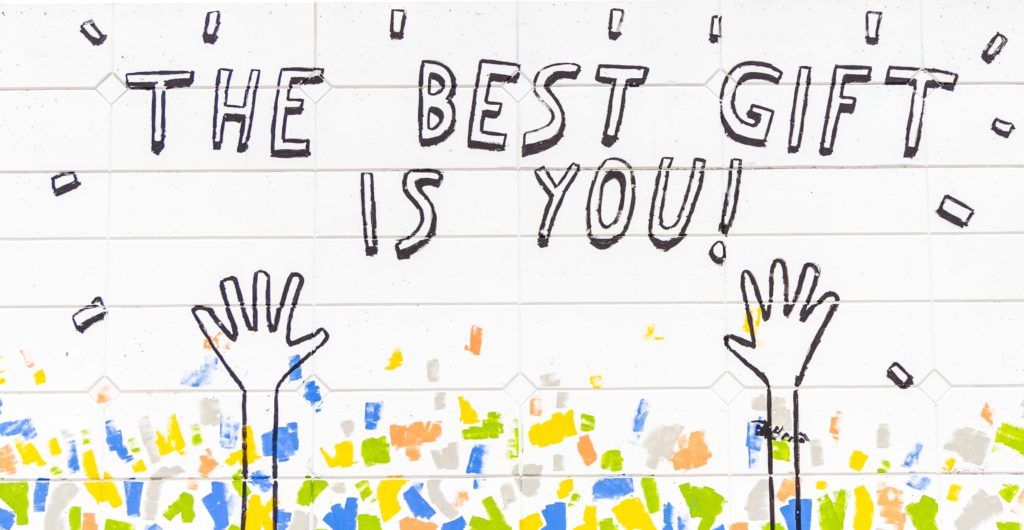
What Does a Redo Mean?
Only human beings can redo themselves. We can stop and pause. Then in that precious space between the stimulus and the response.
We can re-consider our behaviors, ideas, and attitudes. We can make internal adjustments.
Upgrade ourselves. And then we can Redo ourselves. By behaving in ways that make us feel good.
We do not have to be stuck inside of our misstatements or momentary lapses.
When we make mistakes, we can liberate ourselves, instead of shaming ourselves.
Because the meaning of everything is fake news. It is all subjective and open to interpretation.
At times we may interpret things in one-way.
Other times we interpret—or re-interpret—the same thing in a separate way.
Many things influence how we make meaning, but few things influence us more than fear.
When our survival system is triggered by life, we tend to interpret things through a different neurological set of filters.
Our range of interpretations and responses are narrow when under threat. Our responses have been fighting, fleeing, or freezing.
It means that we can open the space between the stimulus and the response. We can buy ourselves more time to reconsider.
Release anxiety and fear. Re-right ourselves so that when we speak, we are expressing ourselves from a higher place.
A more mature place, a more thoughtful and caring place.
We must tap into our ability to make meaning and make choices so that we can re-create our lives as we wish them to be.
Things To Do to Help with Anxiety: How To Liberate Yourself
The first step in healing and liberating your soul from anxiety.
Is making the decision to do so. Then redo what needs to improve. Starting from the inside out.
If you feel like you are drowning in a swamp of mental clutter. Stress, hurt, loneliness, fear, fuzzy-headed, uncertainty, not being able to think straight.
Feeling emotional bankrupt. Or as if something has a spiritual lien on your soul—you need to stop and clean your inner house!
“Make a clean sweep of your lives,” as it says in Luke 3:16-17(MSG).
The health and energy of your soul will dictate how you experience life!
If you make a clean sweep of your life, you will prosper and be in health as your soul prospers.
To get to a state of liberation I encourage you to try these 15 things to do to help with your anxiety…
15 Things To Do to Help with Anxiety

Breathe
“Breathing is the number one and most effective technique for reducing anger and anxiety quickly,” says Scott Dehorty, LCSW-C, of Delphi Behavioral Health.
There are various breathing techniques to help you calm down. taking long, deep calming breaths disrupts the anxiety loop and helps you calm down.
Pray
“Don’t fret or worry. Instead of worrying, pray. Let petitions and praises shape your worries into prayers. Let God know your concerns. Before you know it, a sense of God’s wholeness, everything coming together for good, will come and settle you down. It’s wonderful what happens when Christ displaces worry at the center of your life.” Philippians 4:6-7 The Message (MSG)
Life is full of temptations to be anxious.
Anxiety, fear, and worry are no trivial things in God’s eyes. When we are anxious, we are saying that we do not believe God is able to take care of us.
We are saying that God is not powerful or caring enough to meet all our needs and sustain us through all our trials.
In other words, the only way to be anxious for nothing is to deploy prayer and petition.
I must admit that, at least on the surface, this solution seems simple. I mean, we all know that prayer is important and that we are supposed to present our requests to God.
Repeatedly in scripture, the cure for worry and anxiety is going be go to God in prayer.
“Cast all your anxieties on him, because he cares for you.” 1 Peter 5:7 (MSG)
How do we cast our crushing cares and fears and anxieties upon the Lord?
How do we unburden ourselves to the point where we are not anxious about anything?
Through prayer.
By laying our heavy burdens upon the back of the one who rules and reigns over all things. By bringing all our fears and worries to the burden bearer and laying them at his feet.
There is only one person capable of bearing the burdens presented each day, and it is not us. When we try to bear all the burdens on our own, we are giving in to the lie of self-sufficiency.
We are believing that we have enough strength to conquer all that we encounter each day. This, of course, is utter foolishness.
 By Seeking First, The Kingdom of God
By Seeking First, The Kingdom of GodThe Rabbi Jesus puts it this way:
“So do not be anxious. Saying. What will we eat? What will we drink? What will we wear? For the pagans run after all these things, and your heavenly Father knows that you need them. But seek first the kingdom of God and his righteousness, and all these things will be given to you.” Matthew 6:31-33. (MSG)
Jesus commands us not to be anxious. Instead tells us to direct our attention and action to seek God’s kingdom.
One of the primary ways that we seek God’s kingdom is through prayer and petition.
Prayer is a divine invitation from the omnipotent God. The one who sustains all things. The one who keeps the planets from bolting into each other.
The one who keeps our hearts from blundering into cardiac arrest. To unburden ourselves.
To bring all our cares and anxieties and fears to the King of Kings and lay them at his feet.
To say, “God, I’m not enough, but you are.”
A prayer is a person giving God the legal right and permission to interfere in earth’s affairs.
The most awesome power every human being owns. Is the power to influence earth from heaven through prayer.
“Prayer is a summons from God to be anxious for nothing.”
Prayer is saying to God, “Lord, I am too weak, fragile, and scared. I am not sophisticated enough to figure everything out. I cannot manage all this.
I cannot sustain myself, bear my burdens, or be an analytical person. I. Need. You.”
The command to be anxious for nothing is a sweet invitation wrapped in a command. It’s God saying, “Don’t be silly and try to manage all this on your own. Let me take care of the details. I’ve got this.”
 By Asking, Seeking, and Knocking Through Faith
By Asking, Seeking, and Knocking Through FaithThere is no request or anxiety or need too small (or large) to present to God. He is a good, gracious Father who delights to take care of his children.
He invites us to bring all our needs. The tight budget. The scary diagnoses. The exhaustion from the week, the frustrations at work to him.
There is nothing too small for his care or too large for his sovereign control.
“Ask, and I will give to you; seek, and you will find; knock, and it will be open to you. For everyone who asks receives, and the one who seeks finds, and to the one who knocks it will be open.”
There is one more thing required to be anxious for nothing. One more additive to throw in the “peace that passes understanding” recipe.
That additive is faith.
It is not enough to pray to God. If we are going to be anxious for nothing, our prayers must be rooted in faith.
- Faith in God’s promises to always provide.
- Faith in God’s good, generous character.
- Faith in God’s steadfast love, which will never leave or forsake us.
- Faith in God’s ability to answer every prayer.
Prayer without faith is like a car without gasoline. It will not get you anywhere. Praying without faith is insulting to God. And prayer without works is dead.
It is the prayer of faith that prompts God to heal a person. It is the prayer of faith that moves God to meet every need.
When prayer and faith are established together, God moves.
Yes, the command to not be anxious or fearful seems overwhelming. Impossible. Unrealistic.
But if God commands it, he also empowers us to obey.
Life is too complicated, frustrating, and confusing to navigate on our own. The burdens are too heavy for us to bear.
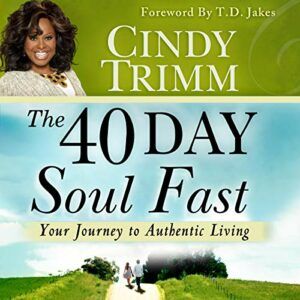 Do A Soul Fast
Do A Soul FastEvery human being on the face of this earth can enjoy a time of soul fasting. Regardless of your religious beliefs or non-religious beliefs.
“Prayer is reaching out after the unseen; fasting is letting go of all that seen and temporal. Fasting helps express, deepen, and confirm the resolution. That we are ready to sacrifice anything, even ourselves. To adjoin what we seek for the kingdom of God.” –Andrew Murray
The same opportunity to live a quality and prosperous life. We all have the same human experiences in different shapes, forms, and sizes. Thus, we can all benefit from a time of soul fasting.
As you seek to understand a soul fast ask the Holy Spirit God the Creator of the Universe. For guidance and wisdom to understand the nature of YOUR soul.
It is imperative to understand that higher power. Higher conscience. The Universe. Whatever name you choose to call the one whom I refer to as God Elohim the Creator and Judge of the universe!
You are not alone when you feel those waves of despair crashing against your mind. For every one step forward, you end up taking two steps back.
Circling yet stagnates, bumping up against walls, blind. Every human being is vulnerable to these dreadful warning sign. By neglecting the life out of our soul!
“I pray for good fortune in everything you do. And for your good health—that your everyday affairs prosper, as well as your soul.” 3 John 2:1 (MSG)
Negative thought patterns, emotions, relationships, and other entanglements. Will keep you from living the abundant life and moving forward in the direction of your dreams.
When your soul feeds on toxic worldly junk and thoughts. The same as if you feed your body toxins in the form of junk food, it slows down. And ceases to operate to its greatest capacity.
This is the time when you need to do a complete cleanse and detoxify your life, body, soul, and spirit.
It is wise to fast from the things that destroy your soul. Instead feast on the things that nourish it. By setting aside time every day to strengthen your inner self.
Eat well-balanced meals
Do not skip any meals. Do keep healthful, energy-boosting snacks on hand.
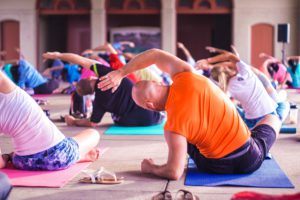 Exercise
ExerciseYou already know that exercise is good for your body. It is also powerful medicine for many common mental health challenges such as depression, anxiety, stress, and PTSD.
People who exercise tend to do so because it gives them a massive sense of well-being.
For the biggest benefits of exercise, try to include at least 2½ hours of moderate-intensity physical activity (e.g., brisk walking) each week, 1¼ hours of vigorous-intensity activity (such as jogging or swimming laps), or a combination of the two.
This indicates that modest amounts of exercise can be effective. No matter your age or fitness level, you can learn to use exercise as a powerful tool to feel better.
Exercise is a natural and effective anti-anxiety treatment. It relieves tension and stress. Boosts physical and mental energy and enhances well-being through the release of endorphins.
You will not only improve your physical condition faster. but you may also be able to interrupt the flow of constant worries running through your head.
Evidence suggests that by focusing on your body. How it feels as you exercise. You can help your nervous system become “unstuck.” Begin to move out of the immobilization stress response.
Make exercise an intentional part of your everyday life.
You do not have to spend hours in a gym. Or force yourself into long, monotonous workouts. To experience the many benefits of exercise.
- They feel more energetic throughout the day.
- Sleep better at night.
- Have sharper memories.
- Feel more relaxed and positive about themselves and their lives.
Aromatherapy
Aromatherapy is a holistic healing treatment that uses natural plant extracts to promote health and well-being. Sometimes it is called essential oil therapy.
Aromatherapy uses aromatic essential oils medicinally to improve the health of the body, mind, and spirit. It enhances both physical and emotional health.
Aromatherapy is another type of practice to reduce the symptoms of stress and anxiety.
Used in conjunction with conventional treatment options, aromatherapy may assist in managing your mental and emotional wellbeing.
Some essential oils I recommend are:Meditation
Research shows that meditation can help you better handle negative feelings and emotions.
While there are many forms of meditation. The goal is a feeling of relaxation and inner peace, which can improve mental health.
Challenge your thoughts
Part of being anxious or angry is having irrational thoughts that don’t necessarily make sense. These thoughts are often the “worse-case scenario.”
You might find yourself caught in the “what if” cycle, which can cause you to sabotage a lot of things in your life.
When you experience one of these thoughts, stop and ask yourself the following questions:
- Is this likely to happen?
- Is this a rational thought?
- Has this ever happened to me before?
- What is the worst that can happen? Can I manage
that?
Accept that you cannot control everything
Put your stress in perspective: Is it as bad as you think?
Go To Counseling. Get Therapy.
Often, people try to cope with those negative reactions by avoiding situations. Or experiences that make them anxious. Unfortunately, avoidance can backfire and feed the anxiety.
Psychologists that are trained in diagnosing anxiety disorders. Are teaching patients healthier, more effective ways to cope.
Whether you are suffering from panic attacks. Obsessive thoughts, unrelenting worries, or an incapacitating phobia.
Treatment can help. And for many anxiety problems, therapy is often the most effective option.
That is because of anxiety therapy—unlike anxiety medication. Treats more than the symptoms of the problem.
Therapy can help you uncover the underlying causes of your worries and fears.
Learn how to relax. Look at situations in new fewer frightening ways. Develop better coping and critical thinking skills.
Therapy gives you the tools to overcome anxiety and teaches you how to use them.
Write it down
If you are too angry or anxious to talk about it, grab a journal and write out your thoughts.
Do not worry about complete sentences or punctuation — just write. Writing helps you get negative thoughts out of your head.
You can take it one step further and make an action plan to continue staying calm once you are done writing.
 Listen to music
Listen to musicThe next time you feel your anxiety level cranking up, grab some headphones and tune in to your favorite music.
Listening to music can have a very calming effect on your body and mind.Change your focus and welcome humor
Leave the situation, look in another direction, walk out of the room, or go outside. A good laugh goes a long way.
To Sum It All
Breathe! Breaking free. Getting clear. Finding that peace and confidence that makes life joyful. Being anxious for nothing, seeking first the Kingdom of God. Asking, seeking, knocking through faith, the Soul Fast, exercise, meditation, and counseling, etc.
Is to get you to your most healthy place and be your authentic self, be kind to that self, and do not be afraid to grow. Conquer your fears and anxieties.
How do you manage your anxieties? Leave your comments in the form below! Sign up for my email list and share this article on social media.
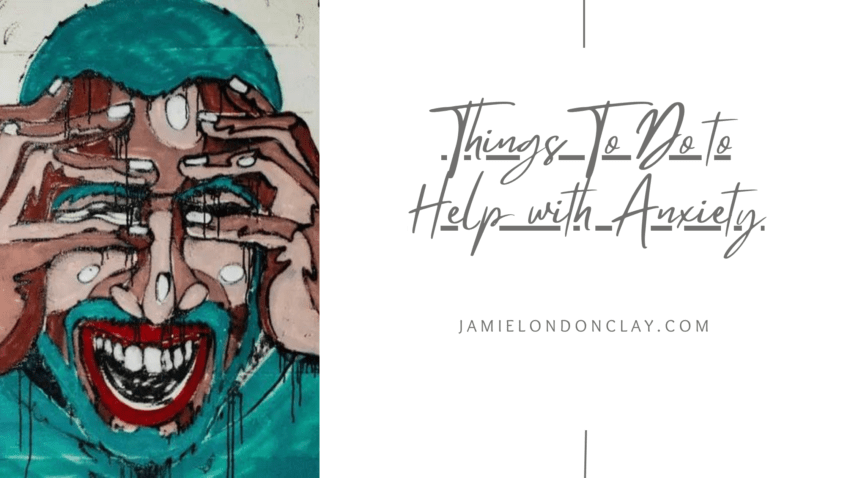
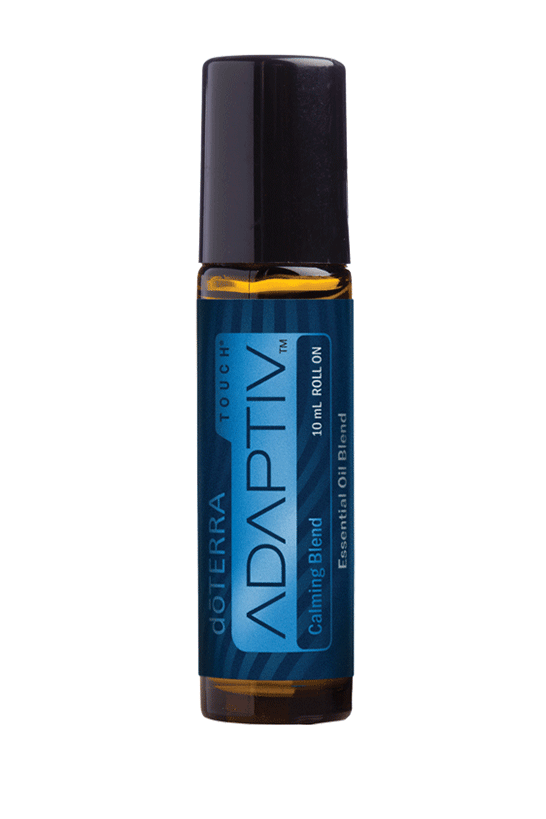
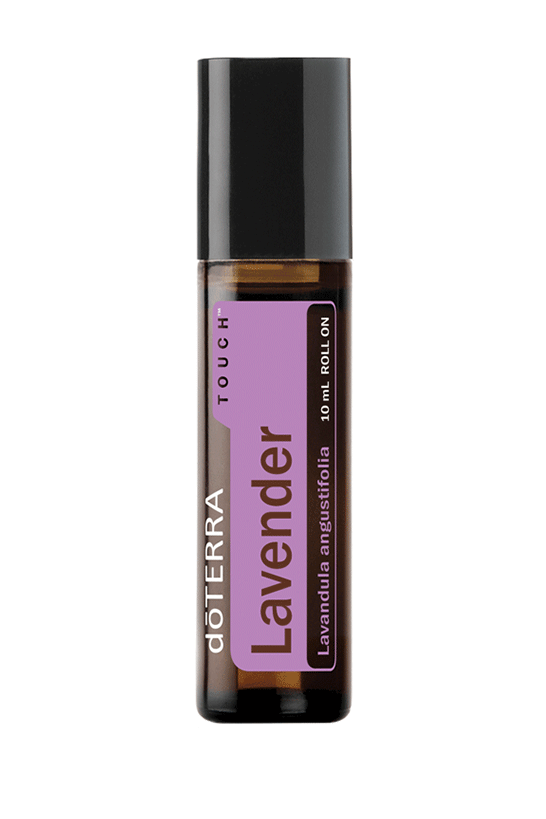
Anxiety is one of the biggest causes for today’s stress. Many people fall into this anxiety syndrome and this greatly impacts their health and mind. The core tips mentioned by Jamie in regards to the anxiety are adding great value to the knowledge and learning. One needs to apply these aspects in their daily lives. The 15 things to do to help with the anxiety is of great value and needs to be added. I will bookmark this website for later reference.
Hi Shivaram! Thank you for your feedback!